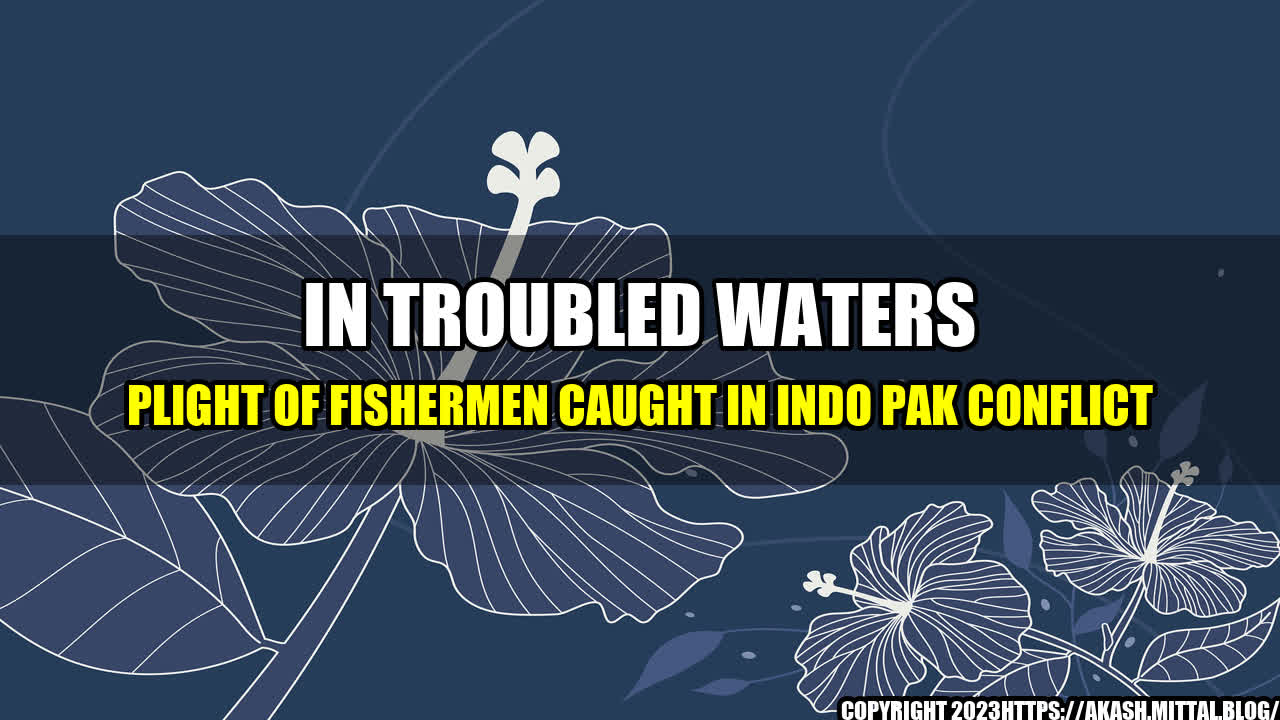The Indian Ocean has long been a vital source of food and livelihood for the fishermen of Pakistan and India. However, in recent years, this once peaceful pursuit has become increasingly dangerous due to the ongoing conflict between the two nations.
One fisherman, Abdul Rehman, knows this all too well. He was out on his boat one day, casting his nets into the ocean when suddenly he heard a loud bang. He looked up and saw a Pakistani vessel approaching. He knew what was about to happen - he had heard stories from other fishermen who had been caught in similar situations. Abdul knew he had two choices - surrender or fight. He chose to surrender, knowing that if he didn't, he could be killed or worse - become a pawn in the political tensions between the two nations.
This is just one of many stories of peril and desperation that has come to define the lives of the fishermen caught in the Indo-Pak conflict.
The Quantifiable Impact of the Conflict on Fisherfolk
The impact of the conflict on the lives of fisherfolk is significant, with many facing physical harm, loss of income and even imprisonment. In 2018 alone, over 150 Indian fishermen were arrested by Pakistani authorities for allegedly straying into territorial waters. The prolonged detention of these fishermen leaves their families without a source of income.
On the other side, Indian authorities frequently seize Pakistani boats and imprison the fishermen. In 2019, Pakistan claimed that over 300 fishermen were in Indian custody and called for their release.
The fishermen caught in the conflict often face violence while at sea. In 2017, a Pakistani fisherman was shot dead by Indian Coast Guard personnel, with a further ten being arrested. In 2018, another Pakistani fisherman died while in Indian custody after being arrested for allegedly crossing the maritime boundary.
Surviving the Conflict
Despite the significant risks, many fishermen are forced to continue to fish in these dangerous waters, as they have no other means of survival. Here are three ways to help them:
- Pressuring authorities to improve communication and cooperation between the two countries to protect fishermen.
- Providing alternative livelihood options such as job training and financial support to help fisherfolk transition to new livelihoods.
- Advocating for the immediate release of detained fishermen to minimize the impact on their families and preserve their rights as protected under the International Law of the Sea.
A Personal Story of Hope
Kausar, a Pakistani fisherman, was arrested in 2017 by Indian authorities while fishing in the Arabian Sea. At that time, his pregnant wife was in the hospital, and he was the sole breadwinner of the family. Kausar was imprisoned for two years, during which his wife gave birth to their second child. The family was forced into poverty, unable to pay for basic needs such as food and healthcare for their growing family.
Thankfully, Kausar was released in 2019 and was able to return home to his family. With help from a local NGO, Kausar is now learning new job skills to start a new career and be able to provide for his family once again.
Conclusion
The Indo-Pak conflict has taken a significant toll on the lives of fisherfolk, leaving many in a desperate situation. However, with the right support and advocacy, it is possible to help these individuals find new livelihoods and overcome the devastating effects of this conflict.

Curated by Team Akash.Mittal.Blog
Share on Twitter Share on LinkedIn